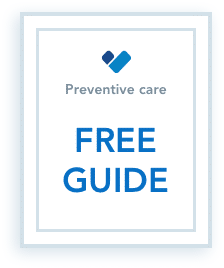The public charge rule, explained
Have you heard about the public charge rule in the news? You may be concerned about how this impacts you and your family. Here’s some more information on the rule and where it stands today.
Note: this post should not be considered legal advice. Always consult a trusted immigration attorney before making decisions that may affect your immigration status.
What is the current status of the public charge rule?
In August 2019, U.S. Citizenship and Immigration Services released a new rule that places limits on public benefits some immigrants and people on non-immigrant visas can use without hurting their ability to gain a Green Card or extend their visa.
However, on October 11, 2019 — just less than two weeks before the rule was set to take effect — it was blocked by two federal courts. This means the rule has been stopped from being implemented as planned by the Trump administration.
If you are an immigrant living in the United States, you should know that the rule as proposed is blocked. This means it is not in effect.
You should not be fearful of enrolling in or continuing in any kinds of benefits at this time.
Here’s what to know about the blocked public charge rule, as designed and planned by the Trump administration.
What is the existing public charge rule?
A “public charge” is an individual who is dependent on the state for subsistence. U.S. state and federal immigration services have long tried to exclude individuals whom they believe are likely to become public charges from immigrating to the US or becoming permanent residents.
In 1999, the Clinton administration created guidance for that allowed immigration officials to consider two main public benefits when deciding whether someone is likely to become a public charge:
- Receiving public cash assistance for income maintenance
- Receiving institutionalization for long-term care at the government’s expense.
Under this guidance, only two kinds of benefits could jeopardize your immigration status. The first was cash assistance programs like TANF and SSI, and other local or state cash assistance programs. The second was receiving long-term care subsidized by Medicaid.
What did the now blocked public charge rule propose?
The new rule was set to expand the number of benefits that immigration officials can consider when determining whether you are a public charge, and created a list of positive and negative factors that could also factor into the decision.
Who did the proposed public charge rule change target?
It’s important to know that the proposed Trump public charge rule would not have applied to all groups of immigrants.
The now-blocked Trump public charge rule would have applied to several groups of people:
- People who are applying for admission to the US
- Immigrants trying to become a lawful permanent resident – i.e. get their “Green Card”
- Individuals with non-immigrant status who are trying to extend their existing visa or switch to a different non-immigrant visa (for example, F1 student visas, H1B worker visas, and J1 exchange visas.)
The proposed public charge rule would not have affected whether you could be deported.
The rule would not have applied to many people. Excluded groups included refugees, asylees, people with U or T visas, and DACA recipients. Also excluded were citizen children of immigrants. The same went for active duty or reserve US military personnel and their spouses and children.
If you fell into one of the 3 affected categories and were trying to adjust your immigration status – for example, you are applying for a Green Card – whether you were likely to become a public charge could have been considered in the decision making process under the now-stalled new public charge rule.
In most cases, the proposed rule didn’t affect lawful permanent residents – i.e. Green Card holders – who are in the process of naturalization. However, a lawful permanent resident who left the United States for more than 180 days could have been submitted to a public charge test upon return to the U.S.
Where do things stand today?
Keep in mind the new rule is not in effect. This is because it was blocked by federal courts. And so the federal government has not been allowed to implement the proposed new rule. Because of this, there’s no need to cancel your participation in benefits. Speak to an immigration lawyer if you are considering cancelling any benefits.
We’ll keep this post updated and let you know if the blocked proposed public charge rule goes into effect. In the meantime, under the current public charge rule, the only benefits that could jeopardize your immigration status are cash assistance programs or long-term care subsidized by Medicaid.
Additional resources:
If you’d like more information about the public charge rule, here are some helpful organizations and resources:
The National Immigration Law Center
Immigrant Legal Resource Center
US Citizenship & Immigration Services – FAQ on the Public Charge rule














Leave a Comment